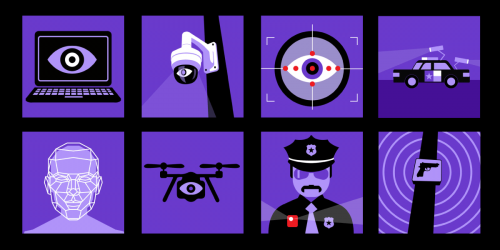 In the wake of reports this week that the secretive Foreign Intelligence Surveillance Court (FISC) ordered Yahoo to scan all of its users’ email in 2015, there are many unanswered legal and technical questions about the mass surveillance.
In the wake of reports this week that the secretive Foreign Intelligence Surveillance Court (FISC) ordered Yahoo to scan all of its users’ email in 2015, there are many unanswered legal and technical questions about the mass surveillance.
But before we can even begin to answer them, there is a more fundamental question: what does the court order say?
We should be able to answer this question. Section 402 of the USA FREEDOM Act, passed in June 2015, specifically requires government officials to “conduct a declassification review of each decision, order, or opinion issued” by the FISC “that includes a significant construction or interpretation of any provision of law.” The Yahoo order would appear to fall squarely within this provision.
Congress passed Section 402 to end decades of secret FISC-created law after learning that the court was interpreting federal statutes and the U.S. Constitution in secret and without the benefit of any other voices to counter arguments by the Executive Branch.
Both the text of Section 402 and statements from members of Congress who authored and supported it make clear that the law places new, affirmative obligations on the government to go back, review decades of secret orders and opinions, and make the significant ones public. This is exactly what ranking House Judiciary Member Representative John Conyers of Michigan said (video link): USA FREEDOM required the declassification of all significant FISC opinions.
If the reports about the Yahoo order are accurate – including requiring the company to custom build new software to accomplish the scanning – it’s hard to imagine a better candidate for declassification and disclosure under Section 402. Given the divergent media reports about what the FISC required Yahoo to do, it is crucial for the public to see the order.
So why isn’t the order public?
The biggest reason is the Department of Justice has refused to comply with the text of the statute and, as far as we know, has not even begun declassification reviews of any significant FISC opinions issued prior to USA FREEDOM’s passage. DOJ attorneys have argued in litigation with EFF that the statute is not retroactive and thus only requires the government to declassify significant opinions issued after June 2015.
Although we don’t know the exact date of the Yahoo order, the stories indicate that the scanning began sometime in spring 2015, which would be a few months prior to passage of USA FREEDOM. Thus, under DOJ’s view, Section 402 wouldn’t apply to the Yahoo order.
But it is irrelevant that the Yahoo order may have been issued earlier in 2015 before the passage of USA FREEDOM. DOJ’s cramped interpretation of the law conflicts with Congress’ explicit command in Section 402 that the government must review “each” significant FISC opinion, declassify and release it. There is no start date in the text to support the DOJ’s reading.
The DOJ’s view also conflicts with one of the chief advocates for greater FISC transparency, Oregon Senator Ron Wyden, who on Friday called for the government to release the Yahoo order because it is required to under USA FREEDOM.
EFF is fighting the DOJ’s incorrect interpretation of Section 402 in court right now. We hope that the court will dismiss DOJ’s wrongheaded view of the statute and require it to declassify and release all significant opinions the FISC has issued since its inception, including the one issued to Yahoo.
Releasing the Yahoo opinion will help us begin to answer the bigger questions about the Yahoo order and its dubious constitutionality. Releasing all significant FISC opinions will not only comply with what Congress required under USA FREEDOM, it will help us better understand exactly what the FISC has secretly decided about our civil liberties.








